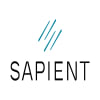Dive Brief:
- Celgene approached only one other pharmaceutical company about the possibility of a deal as it negotiated an acquisition by Bristol-Myers Squibb, ultimately deciding against further outreach to potential buyers after the CEO of that unnamed drugmaker signaled no offer was forthcoming.
- Executives at Celgene judged that drugmaker to be the only company with sufficient scale and a product portfolio similarly complementary to its own as Bristol-Myers' was, and expressed concerns that contacting further companies risked a damaging news leak.
- Details of Bristol-Myers and Celgene's discussions over what eventually became one of the pharma industry's largest buyouts ever were revealed in a proxy statement filed by Bristol-Myers on Friday. The document shows Bristol-Myers made five offers to buy Celgene over the course of three months of intense discussions.
Dive Insight:
Bristol-Myers Squibb and Celgene first broached discussions of a potential "merger of equals" in early 2017, briefly entering into a confidentiality agreement before calling off further negotiations.
Over the next year, the fortunes of both drugmakers soured. R&D setbacks and cuts to sales forecasts eroded confidence in Celgene, while Bristol-Myers Squibb saw its commercial advantage in immuno-oncology disappear as Merck & Co. notched a string of important clinical successes for its rival drug Keytruda (pembrolizumab).
By early fall of 2018, Bristol-Myers's board of directors returned to the idea of a Celgene buyout, directing CEO Giovanni Caforio to meet with Celgene chief Mark Alles with an acquisition offer in mid September.
In the next three months, the two companies negotiated intensely over what would constitute fair value for Celgene, with Bristol-Myers driving a hard bargain, a proxy statement filed Feb. 1 shows.
Bristol-Myers initially offered to buy Celgene for $110 per share, with roughly $35 of that offer in cash and the rest in equity. The pharma made four more offers between Sept. 21 and Dec. 30, but Bristol-Myers' sliding share price kept the face value of the deal from rising significantly.

In mid-December, after considering three offers from Bristol-Myers, Celgene decided to approach the only other drugmaker that "potentially would have a strategic fit with Celgene that was as strong as that between Celgene and Bristol-Myers Squibb," the document said.
While that company is unnamed, Wall Street analysts noted few companies that would meet that description, identifying in investor notes Merck & Co, Pfizer and AbbVie as possibilities.
But a lack of interest from that company sent Celgene back to Bristol-Myers, which informed Celgene its previous offer was no longer on the table. The pharma proposed a deal with a lower cash component and a contingent value right (CVR) arrangement that would pay Celgene shareholders more money upon approvals of several key experimental Celgene drugs.
Further discussions between Christmas and New Year's Day solidified the deal to its final $74 billion form, in which Bristol-Myers would pay $50 in cash and one Bristol-Myers share per Celgene share, along with a CVR worth $9 per Celgene share.
Disclosure of these negotiation details support the view of Wall Street analysts who saw as unlikely widespread interest from other companies in a major acquisition of either Celgene or Bristol-Myers.
"With no other parties involved in the negotiations for [Celgene], coupled with recent commentary from other large-caps indicating low interest in large acquisitions, we believe the appetite for, and likelihood of, additional biopharma mega-mergers is low," wrote RBC analyst Brian Abrahams in a Feb. 1 note to investors, arguing the deal appears to be a "one-off."
And while Celgene's buyout and other recent takeovers by GlaxoSmithKline and Eli Lilly have fueled hopes of a major year for industry M&A, dealmaking is not guaranteed to remain at high levels — as past years have shown.
Bristol-Myers and Celgene anticipate closing their deal by the third quarter of this year. Whether the buyout lives up to expectations won't be clear for some time, but its likelihood of coming to pass appears more certain.













